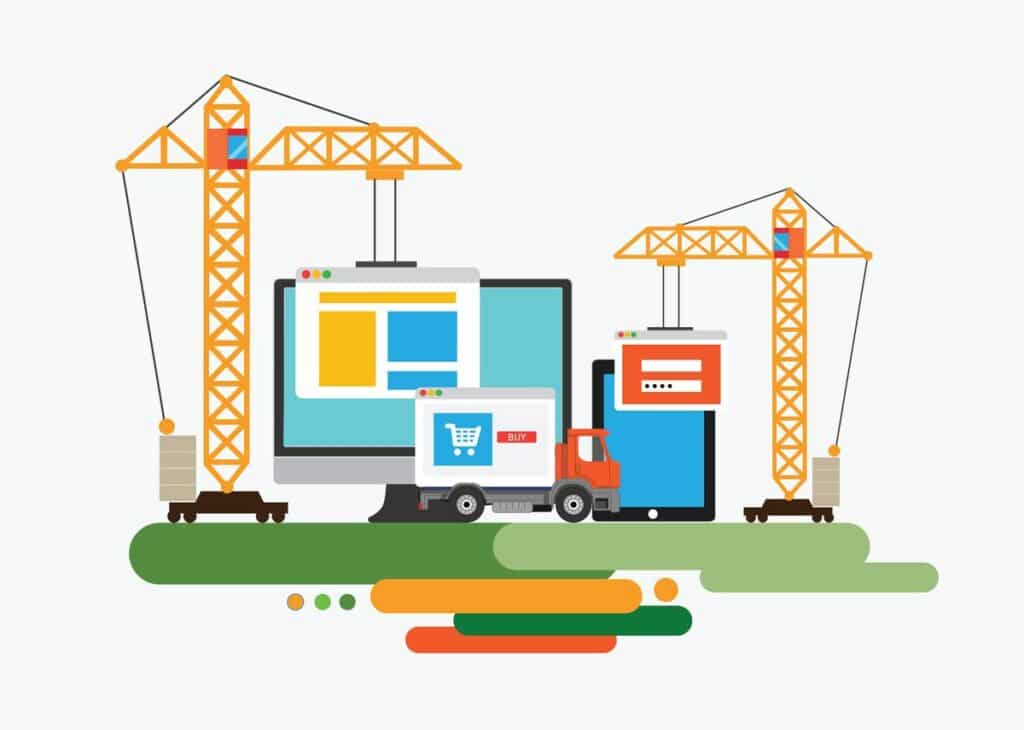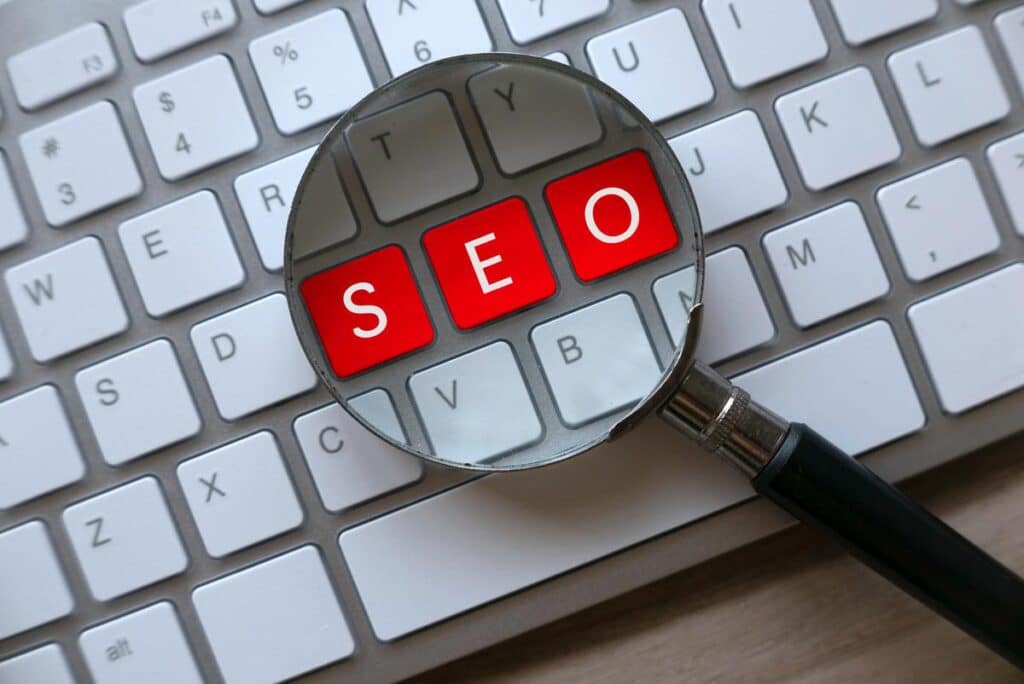Having an online presence is crucial whether you’re a small business, a new start-up, or a large organization. Especially with our current digital landscape, where customers look online first for new product recommendations or reviews.
With the influx of businesses competing for your audience’s attention online, just how do you make your mark and stand out? Take a look at our guide here and see how you can grow your online presence.
Table of Contents
ToggleHow To Build A Strong Online Presence
Every business is unique, and a method that works for one might not work for the other. However, some methods are applicable and essential to any business in the world, so let’s start with those.
Build A Great Website

Every business needs a website. Think about it. If you’re looking for a repairman to fix your house, you’ll probably go for one with a website. After all, aside from having all the information you’ll need about their business in one place, it also makes them look more trustworthy and legitimate.
And most customers think the same. People don’t trust businesses that don’t have a website, especially in our digital age. It doesn’t matter if you’re a small local business or a large organization; people expect you to have a website, period.
But creating a website is just the first step. What’s even more important is to create a great website. After all, 75% of consumers judge your business’s credibility based on your website’s design.
So how do you do this? Here are some things to keep in mind:
- Have all the important information. This includes your contact number, address, opening hours, list of products and services, About Us, etc. Make sure this information is always up to date.
- Secure a good domain name. Aside from adding more credibility to your business, it also helps in SEO. If you don’t have a business name yet to use for your domain, check out business name generators online to help you gather some ideas.
- Use easy-to-read fonts. While blocky fonts or handwritten scripts look nice, they are difficult to read if used all over a webpage. Stick to using fancier fonts on headers, and use simple fonts like Lato or Open Sans on your content.
- Have a simple and clean layout. Don’t overload a page with too many graphics or too much text, and stick to 2-3 colors on your pages to keep it looking clean.
- Make your website easy to navigate and use. Don’t have your customer click through multiple pages just to get information; make sure your search feature and clickable links are all working, etc.
- Use beautiful and high-quality graphics, but don’t forget to compress image files to avoid slow-loading websites.
- Make your branding present at all times. Display your logo design, use your brand colors, and ensure that your written content reflects your brand voice.
- Avoid intrusive pop-ups or ads.
- Ensure that your website is secured from data breaches or hackers.
By following the tips above, you should create a great website that can boost your business credibility and help you grow your online presence.
Optimize for SEO

Now that you have your website, it’s time to maximize it for SEO. After all, even if you created a really awesome website, if it doesn’t show up in web searches, it’s pointless.
There are three aspects that you have to prioritize in order to optimize for SEO. These are your on-page SEO, your website content, and your site’s mobile version.
Let’s start with on-page SEO. Simply put, these are the internal things you can do on your website to boost your rankings. For example:
- Keywords – Keywords are a crucial part of SEO. Using a keyword means that it is the main topic of your content or article and will make it possible for people to find your article when they search for that keyword online. Do keyword research to find a keyword to target and one that is fitting for your business. Then, make sure to use your keyword on your website’s written content.
- Title Tags and Metadata Description – These are HTML codes that appear on your web page header. It signals to search engines what your page is about. Make sure that this contains your keyword to boost your page ranking. It’s also important to ensure this is well-written yet brief, as this is what your customers see when they see your article on search results or share it on social media.
- Alt Tags are text descriptions that you add to your website’s images or videos. These allow search engines to locate your pages. Make sure also to use your keywords on your alt tags.
- Page speed – It’s no secret that customers hate slow-loading pages. But did you know that it affects your search rankings as well? Page speed is a direct factor for search ranking, especially after Google’s Algorithm Speed Update. Ensure your website is optimized for fast loading, and continuously check your page speed on https://pagespeed.web.dev/.
Next is your website content. Optimize this by adding your keywords to your headline, subheading, and body content. However, ensure you don’t overstuff it with keywords to the point that it is unreadable. Remember, you are still writing for your customer. It’s important that your content is engaging, valuable, relevant, free from grammatical errors, and enticing to read. Aside from signaling to Google that your content is valuable, having well-written content will also make your customers want to return to your site.
Last is your mobile site. With the rise of mobile phones and mobile searches, having a desktop site is not enough. Having a mobile site is crucial if you want to build your online presence and rank higher in search results.
Also, there’s a difference between being able to access your desktop site on mobile vs. having a mobile-friendly site. Your site should be optimized for mobile. This means that the layout, images, videos, and text are adapted to fit the smaller screen. It also means that menus and navigation are lessened or simplified.
Google now uses your mobile sites instead of your desktop site to rank your page. If you don’t optimize for mobile, your ranking will take a hit. Having a great mobile site is also essential for maintaining your customers, as customers are 5x more likely to leave a non-mobile-friendly site.
Use Social Media

Being active online, especially on social media, is crucial when it comes to building your online presence. More than half of the world is on social media, and they spend at least 2 hours daily on it. If you haven’t jumped on the social media bandwagon yet, now is the time to do so.
Like a website, most people tend to trust businesses with social media profiles. It adds to your credibility and is easier for them to contact you if they have any questions or concerns.
Leverage this by creating profiles for your business on various social media pages. Contrary to popular belief though, you don’t need to be on all of them. Select the platforms that best suit your business and where your target audience usually spends time so that you can focus your attention on it. It is also a more efficient use of your time, as you will lessen the hours spent creating and posting content.
Social media is a great way to promote your products and services without spending too much, as digital advertising costs far less than traditional ones. It’s also easier to reach new audiences, even globally. If you want to advertise on social media, consider using Facebook Ads, as it is the world’s most-used social platform and the most cost-efficient ad platform right now.
Influencer marketing is also one of the ways to stamp your presence online since most people rely on influencers for product recommendations. And most influencers need your social media page to direct their followers. If your business doesn’t have social media, you won’t be able to utilize this fast-growing marketing strategy.
Final Thoughts
Boosting your visibility online is a priority. Without an online presence, a.) your customers won’t be able to discover your products or services, b.) you won’t be able to establish your business credibility, and c.) you won’t be able to convert interested customers into sales. Although building an online presence will take a lot of time and effort now, it will all be worth it when it results in your business growth.
Author’s Bio
Janella Malapad – Janella is an outreach specialist at DesignCrowd. She spends her free time playing volleyball on the court, carrying enthusiasm, and embracing the love of the sport when she’s not lost in the captivating landscapes of poetry.

